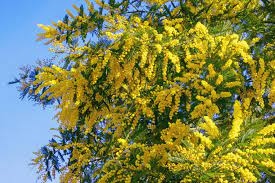


Looking forward to plant some trees in your yard? Some choices might seem more aesthetically pleasing to you, but beware! Some plants might not be as good for your lawn as they look. Trees create a lot of waste, they affect soil quality and some might be infectious.
Tulip Poplar
The American tulip tree are tall and beautiful trees in North America, reaching over 80 feet. However, they require careful maintenance and caution. While they offer an appealing view, particularly during their orange leaf season, sitting under them is not recommended due to the risk of falling branches and twigs.
Leyland Cypress
Cupressus leylandii, resembles a Christmas tree, is famous for yard privacy. However, these trees, are unsuitable for yard planting due to their rapid growth and size, which can pose safety hazards during storms. Privacy is essential; Leyland Cypress trees are also prone to fungal infections, creating further safety hazards.
Bradford Pear Tree Flowers
Bradford Pear Trees, also known as “Callery” pear, are native to Asia, imported to the eastern America, were widely planted around homes in the 1960s. Given their height, over 50 feet, the smell can be overwhelming, making them a poor choice for those looking to keep their yard or smelling fresh. These trees are attractive, but their unpleasant odour poses a significant drawback.
Black Walnut Trees
Black walnut trees, also known as Juglansnigra, can be a nightmare for garden enthusiasts due to the toxins they produce.To maintain a yard with black walnut trees, gardeners must replace their plants with juglone-resistant varieties, which is time-consuming and challenging. Therefore, having black walnut trees in your yard could pose significant challenges to maintaining a healthy garden.
Mimosa Trees
Mimosa trees, also called Albizia julibrissin, are native to the Middle East and China but were brought to the America. While their bright colour may be attractive, These fast-growing trees are short-lived, attract insects such as web worms and moths, and are prone to breakage. Opting for other tree varieties is best to ensure a healthier and easier-to-maintain garden or yard.